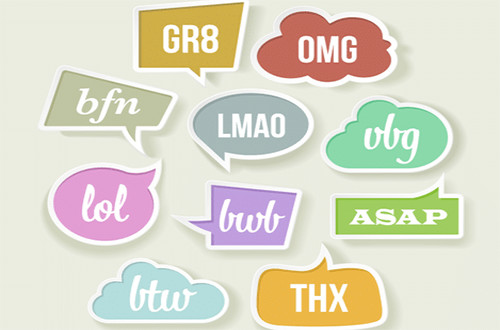THE CONCH
I BLOW THE CONCH ON ISSUES
How Social Media Slang Or Jargons Have Affected English Language?
By Alusine Fullah
As a former teacher, I was privileged to go through some exams answer booklet that some pupils/ students wrote and I was open-mouthed. Honestly, I get bewildered these days reading many of the posts on social media, and text messages sent through cell phones, because of the kind of English that young people now write/ speak. To be frank, the kind of new English being written by WhatsApp, Facebook and tweeter users, particularly university students, is however so appalling and disgusting, because it is crawling into regular writing. Tweeting and texting is vastly producing a generation of users of English. It is sad or even worse that they are using English as a second language. Looking at the older generation who had to go through the rigor of being told to write proper English or being chastised/ severely punished in schools/ at home for speaking vernacular or for making careless mistakes of grammar and punctuation, the kind of English now being written by young people can be TOTALLY CONFUSING.
Moreover, as a new generation, they don’t have an iota of regard for punctuation. In fact many a time, they don’t know the difference between a comma and a colon not to talk about proper words correction. Many social media users have murdered parts of speech; ignore punctuation; and violate all rules of lexis and syntax. They seem to rely more on sound rather than formal meaning. My phobia is that a generation being brought on twitter, Facebook, WhatsApp English is showing a lack of capacity to write impeccable English or communicate properly. Interestingly, the irony is that it makes sense to the users, and they can conduct lengthy conversations in this strange version of the English language. Social media English has been subjected to the punishment of excessive abbreviation, compression and modification. It is English by sound.
In place of the word “the” you are likely to see “d”, “are” you are likely to see “ar”, “you” you are likely to see “u” “see” as “c”, “hate” as “8”, “forget” as “4get” “between” as “btwen” “your” as “ur”, “how are you” as “hawayu”, “thank you” as “tank u” etc. haaaaaaaaa!!! Very interesting!!
This paring down of language gets really worse when it is further reduced to mere jargon that is understood only by the users/ young generations who have accustomed to it. Parents, you can take a look at your child’s text messages or WhatsApp and not be able any sense out of the jumble of incorrect English, graphics, memes and pure lingo. The danger is that sexually suggestive conversations can be carried out by two young persons, texting each other and a dinosaur-parent/ teacher would have no idea. What can a teacher/ guardian/ parent make out of the following: “121” (one to one) “53x” (sex) “I43” (I love you) “ADIDAS” (all day I dream about sex) “AML” (all my love) “BFF” (best friend forever) “9” (parent is watching) “99” (parent is no longer watching). This bunch of abbreviation and incorrect English has revealed certain things about the growing up generation. There is a fascination with speed when they get on their phones and other social media platforms. Many of the pupils/ students who have become socialized and infatuated into this new mode of communication are not always able to distinguish between impeccable and faulty English, and this is why parents and teachers MUST be concerned. It is possible to conclude that the teaching of morphology and syntax in our various schools is no longer as rigorous as it used to be. Teachers and parents have a great onus to ensure that their children are able to learn the very minimum of skills: the ability to communicate in decent and impeccable way.
Yes, the ability to write clearly has great tendency to strengthen the person’s ability to think clearly and to communicate effective. It should not be surprising that many young people these days seem more at home in the world of gadgets and electronic appliances. Social media jargons are vastly influencing English language and the standard of education too. As a nation what are we to do about it? Today, if students/ pupils cannot write flawless English in their exams (WASSCE/ BECE) I am confidently to say that it is as a result of social media jargons. Many of them cannot spell well, also many of them cannot pronounce well. Why? Social media jargons are contributing immensely to it.






![Invitation for Bids [Sierra Leone Football Association] [Technical Centre Upgrade for SLFA Secretariat] Procurement Number [SLFA/PU NCB/WORKS/007] Date of First Issue [27 OCTOBER, 2023]](https://forumnews-sl.com/wp-content/uploads/2023/10/SLFA-BID.jpeg)







